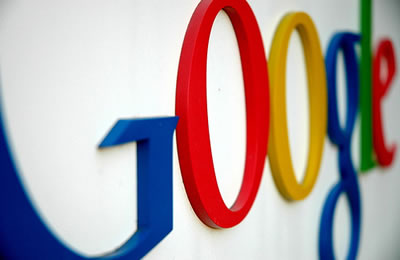Google has sent a fresh batch of concession proposals to the European Union (EU) in a continuing effort to settle a three-year-old antitrust case that has embroiled the company in Europe.
The latest concession proposals were revealed in a 9 September story by Reuters, which reported that they arrived two months after the EU’s executive arm, the European Commission (EC), had asked for more concession ideas from Google. The EC has been seeking Google’s ideas on how it could settle complaints that the company was blocking competitors’ results in web searches in favor of its own results.
Ongoing investigation
“The Commission received a proposal from Google and is assessing it,” said EU Commission spokesman Jonathan Todd, according to Reuters. Todd did not disclose any details about the latest Google concession offerings, the story reported.
A Google spokesman, Al Verney, told Reuters that the company’s “proposal to the European Commission addresses their four areas of concern”, but did not disclose further details, according to Reuters. “We continue to work with the Commission to settle this case,” Verney said.
 Google officials are under investigation in Europe regarding its search engine, which holds more than 60 percent of the search market, with Microsoft’s Bing being a distant second. Competitors have claimed that Google works its search algorithms to favour its own products and results over those of others, giving it an unfair advantage in search and web advertising.
Google officials are under investigation in Europe regarding its search engine, which holds more than 60 percent of the search market, with Microsoft’s Bing being a distant second. Competitors have claimed that Google works its search algorithms to favour its own products and results over those of others, giving it an unfair advantage in search and web advertising.
A guilty verdict on such charges could mean a fine of up to 10 percent of Google’s annual revenue, which based on its 2012 annual results, would amount to about $5 billion (£3bn).
One key sticking point to any settlement continues to be a major issue. The lobbying group FairSearch, whose members include Microsoft and other competitors and companies that have complained about Google’s alleged conduct, argue that they should have a say in agreeing to whatever concessions are finally accepted and approved since they were allegedly harmed by Google’s conduct.
“Given the failure of Google to make a serious offer last time around, we believe it is necessary that customers and competitors of Google be consulted in a full, second market test,” FairSearch lawyer Thomas Vinje said in a statement, according to Reuters.
Advert labelling
In April, Google proposed several concessions that were apparently not seen as going far enough. The company had offered to improve how it labels ads in its search engine to make them more clear, and to change and improve how it displays links to competitors’ ads in search.
Proposed under the deal was a plan for a month-long “market test” of the arrangement to provide competitors, many of whom are behind the antitrust complaints against Google, some time to offer their input into whether the proposed changes are sufficient. Another change under the April proposals was that Google would allow websites to keep their content out of Google’s specialised search services, while ensuring that any opt-out does not unduly affect the ranking of those websites in Google’s general web search results.
The EU investigation centres on what the agency regards as Google’s dominant position in search.
Google had also sent an earlier batch of concession ideas to the EC in January, which was the second batch since an initial offering in July 2012, when Google executives sent a list of initial concessions to address the potential antitrust concerns. At that time, Google chairman Eric Schmidt sent a letter to the EU’s Competition Commissioner Joaquin Almunia, outlining steps the massive web company would be willing to take to resolve the EU’s concerns, including claims that it favours its own search results over others.
Almunia had given Google officials that opportunity to address that issue and other concerns, including the use of material from other search engines in its results and its dominance in web advertising, all of which investigators said put competitors at an unfair advantage.
Google’s legal situation in Europe continues even as a similar antitrust probe in the United States was resolved in Google’s favour in January 2013. Instead of a major antitrust prosecution in the United States, Google entered into a voluntary agreement with the Federal Trade Commission to change some of its business practices to resolve the complaints of some competitors about Google’s practices. In the FTC case, key competitor Microsoft had led a fight with other technology companies to argue for strong FTC actions against Google to punish it for what they believed were unfair business practices.
Do you know all about IT and the law? Take our quiz.
Originally published on eWeek.





